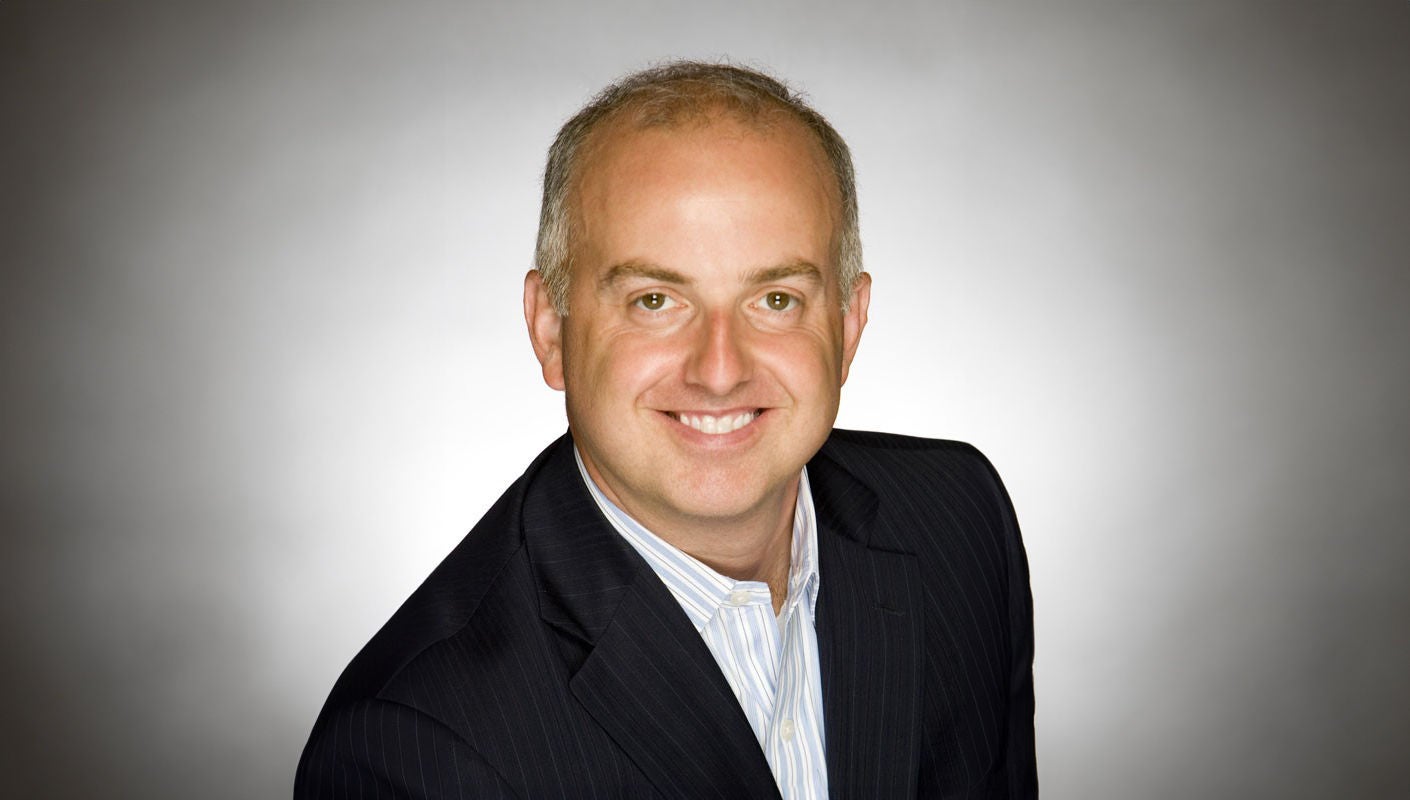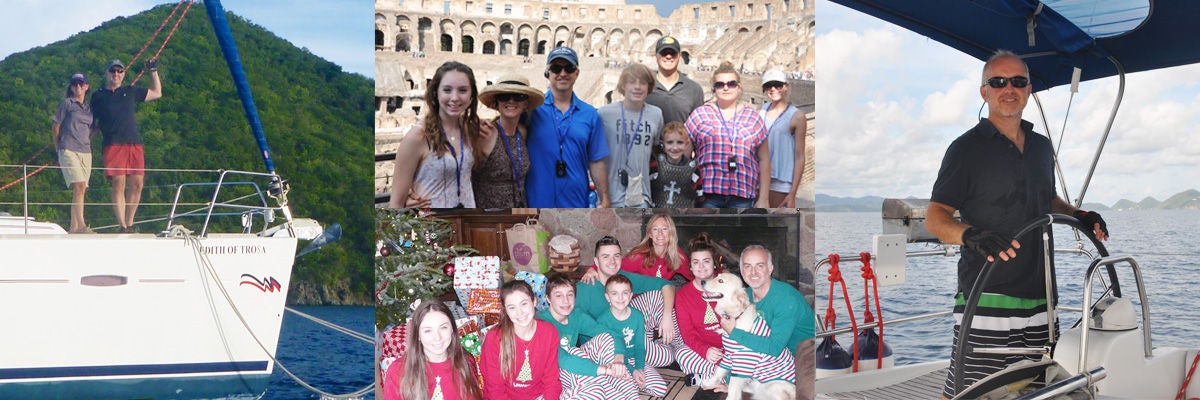Q&A with David Rouls: General Manager, Michigan

We spoke with David Rouls about his passion for Michigan and how the city is getting its swagger back.
Tell us a bit about your journey before joining Slalom.
I spent over 25 years with Accenture. I started there right out of college and made full partner after 10 years. I had the privilege of service as a partner/managing director for over 15 years.
The bulk of my career was in the utility and energy industry. I led Accenture’s global smart grid business, which was one of our very few corporate-wide initiatives. We grew it from about $5M to a global practice of $450 million in 25 countries, which is something I’m very proud of.
Most of my client experience was leading multi-year transformation programs that included major technology deployments, operating model changes, organization effectiveness, and business process changes. I was also in our sales organization where I led our big deal program.
What led to your decision to join Slalom?
I've been asked that quite a bit, as you might imagine, since my career at Accenture was in full swing. The two biggest reasons I chose Slalom were the strength of its local model and especially its people-first culture. Both of these things intersect nicely with its established track record of exceptional client service.
Also, Slalom offered me an opportunity to focus 100 percent on Detroit clients and creating Detroit jobs. After having traveled and worked all over the globe helping companies, I’m excited about building a team that could help create 500 Detroit jobs—right here. I want to help the Detroit people get and create jobs they love where, together, we can help our Detroit clients compete on a global scale.
How do you think the people-first approach drives better outcomes for clients?
A people-first culture translates into enthusiasm. You’re invested and focused on the client. You’re excited to make Slalom and the client proud. You’re thinking about some of the client problems after work. You feel really appreciated. You know that if you do a good job, your company will celebrate your success. All of this happens when a company puts people first. And clients feed off of it. When they see a really energized, happy team, they feel it, and they elevate their performance as well.
What challenges and opportunities is the energy industry facing right now?
If you think about the energy industry—oil and gas, electric, water utilities, chemical, petrochemical—the industries within it are all facing different, but related, challenges. The price of their products have come down, and there are a lot of alternatives. Even with electric production, people have more and more alternatives—fuel cells, solar, wind.
All of these outside forces are causing a significant amount of pressure for companies. Many are realizing that although they’ve made changes to the back office—to reduce costs by putting in ERP [enterprise resource planning] systems and optimizing supply chains—the next big step is to go right at the core of their operations. The types of technologies that these companies have to think about are changing dramatically, and that's a perfect sweet spot for Slalom. We’re not a company that's going to put a big ERP system in. We’re a company that’s coming in to help companies create focused, innovative, digital solutions—and these things get far more complicated inside of these clients' core operations. There’s a significant opportunity for us to use our skills across many industries and apply them to energy.

What makes Detroit a good fit for Slalom right now?
Let's first talk about what’s going on in Detroit. I was born and raised here, have always had my home here. I love Detroit. Obviously, we got hit very hard in the recession. When most people think about Detroit, they think about the blight. They think about the bankruptcy in 2013. Now all of us—our business leaders, our residents—are painting a new image of Detroit.
We elected a new mayor in 2014, and he has the confidence of both the business community and residents—something that hasn’t happened in a long time. He’s very scrappy and makes things happen. The whole city is pretty scrappy. People are walking the walk. We’re getting a lot of our swagger back.
If you look at the 11-county region that Slalom's going to serve, we're number two in GDP growth among all major U.S. cities. And we're number three in job growth. It’s really exciting to see this region lifting up. And it's not just on the backs of our automotive industry. Healthcare, for example, employs almost three times the number of auto jobs in Detroit.
We've got new restaurants, new parks, new transit, and billions in commercial and entertainment capital that's being injected into the city. Detroit is in the middle of a renaissance in every sense of the word, and we're launching Slalom Detroit right in the middle of that. How perfect is it that we, Slalom, get to be a part of this?
Are there particular types of projects or work that we'll be pursuing specifically?
Like we’ve seen in the energy and utility industry, our automotive and healthcare industries here in Detroit are going through major changes over the next five years. The race for connected and autonomous vehicles is on. Car-as-a-service is on. You've got all sorts of new entrants in the automotive space, and we haven’t seen that level of new entrants into automotive for 50 or 60 years. There are also similar changes happening in the healthcare industry.
So, when you have that kind of change, you have to drive new business models. You have lots of new digital technologies to consider. Part of that's mobility. Part of that's analytics. Part of that's interactive. And you have major change management, because those people will be going through a lot of changes trying to understand how their industry is changing, who the new competitors are, what consumer behavior and expectations are. We’re going to be leveraging all the different expertise we have within Slalom to help companies make these big changes. That's very exciting for us.
What are the key things that make a business transformation successful for a client?
First and foremost, I always start with active listening. Folks who work with me know that I talk about it all the time. It's not about hearing the first key problem that the client brings up and pouncing on it with, “We’ve done this to solve that.” It’s pausing and asking more questions about what the client is saying, and then playing it back to him, asking, “Is this what I'm hearing?” When you've done that well, and you gain a deep understanding of the client's goals, it’s the first step in building the foundation for success.
It also goes back to enthusiasm to help the client. These transformation programs are not three or six months. When an industry like energy goes through a transformation, it’s a journey. So, when you've got a team of people who are incredibly enthusiastic, who ask a lot of questions and have a lot of ideas, who are excited to represent Slalom, it helps clients understand that achieving something they thought was very difficult may be feasible. You instill confidence in the client, which is important, because some of this transformation can be a little scary.
Tell us about the team you're building in Detroit and what qualities you're looking for.
We've got five or six people in Detroit so far, so we need to be nimble and scrappy. First and foremost, I’m focused on building the leadership team. Everybody on our leadership team, including myself, will be rolling up their sleeves and playing multiple roles to get new clients and to continue recruiting the rest of the team.
When I’m interviewing, I’m asking myself, Are they going to put our people first? Do they have a strong work ethic? Do they thrive on getting close to their clients? Do they really have their clients’ backs?
I’m looking for experience in a diverse range of industries. I want a well-rounded team. I've also always had a tremendously diverse team, and that will be an absolute priority too. We’ll take our time looking for candidates to make sure that we have the right diversity in the team, especially when you consider the diversity of the population in Detroit.
How would you describe your approach to leadership?
I always like to start with having a clear vision of where we’re heading, and the vision can’t just be my own. I want many people to weigh in. I always say I don't have to be right—I just want to get it right. I want to make sure that as we evolve our vision for Slalom Detroit, people have a chance to weigh in. That's why a lot of people took a risk jumping into something that doesn't actually exist in Detroit yet. We're going to be creating it, and they're excited to be a part of creating that vision. I’ll be right there with them, listening to the client, understanding opportunities, understanding how we help them. And then just having fun and celebrating our success.
What’s the most important lesson you've learned in your career?
The most important lesson that always sticks in my head is from when I was a newer partner, maybe two years in, and I had the fortune of being asked to take on a role of being a client partner for one of our largest clients while I was also doing delivery. Then I was asked to lead a small practice—it was a lot to handle at one time. And I didn’t ask for enough help. The lesson is: don't take on too much without delegating. It’s okay to ask for help. It’s okay to say no sometimes.
You're on the board of directors for the Heat and Warmth Fund. What inspired you to get involved with that organization?
I've been involved with the Heat and Warmth Fund for about three years, on the board for two years. The Heat and Warmth Fund has been around since 1985 and has helped 200,000 Michigan households pay their heating bills in the winter. Eighty percent of the families who need help in one year don't need help the next, which tells you that something came up—someone lost their job temporarily or just needed help. I’m really proud to be part of that organization and proud of the quality of that team. Almost every penny goes to our Michigan families in need. They run a very lean machine, and they have a great reputation.
What's your favorite thing to do in Detroit outside of working?
My wife and I have six kids—three boys and three girls. And a dog. We’re the Brady Bunch. We live in a 180-year-old house, so as you can imagine, we’re full of adventures every day. Most of our free time is having fun with the eight of us in our old house. We also go to our cottage on the lake in Northern Michigan and go sailing. It’s become our favorite hobby. We also love to go snow skiing, dirt biking, anything outdoors. We spend most of our summers at the cottage, all of us together, playing. It’s great.
Where do you see Slalom Detroit in the next five years?
We’ll be serving a very diverse set of industries—automotive, healthcare, financial services, home products, food and beverage. We’ll have a well-known brand in Detroit, known for being a full-service consulting firm that really comes through for our clients. I think we’ll have at least 300 people—I’d love to be 500 people strong in Detroit. And I know the Slalom people are going to be loving their careers in Detroit. I'm absolutely confident of that.